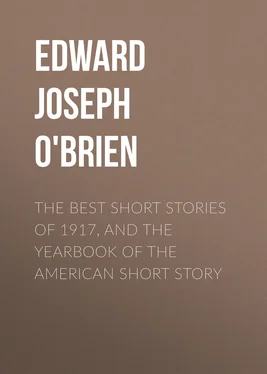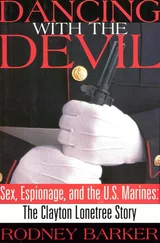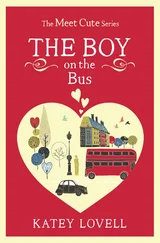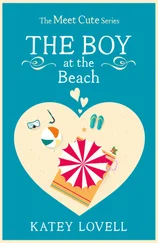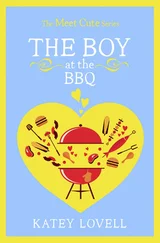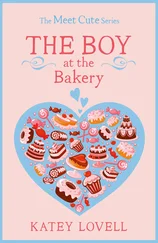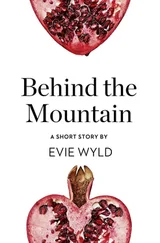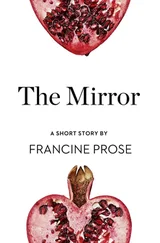Edward O'Brien - The Best Short Stories of 1917, and the Yearbook of the American Short Story
Здесь есть возможность читать онлайн «Edward O'Brien - The Best Short Stories of 1917, and the Yearbook of the American Short Story» — ознакомительный отрывок электронной книги совершенно бесплатно, а после прочтения отрывка купить полную версию. В некоторых случаях можно слушать аудио, скачать через торрент в формате fb2 и присутствует краткое содержание. Издательство: Иностранный паблик, Жанр: foreign_prose, literature_20, foreign_antique, на английском языке. Описание произведения, (предисловие) а так же отзывы посетителей доступны на портале библиотеки ЛибКат.
- Название:The Best Short Stories of 1917, and the Yearbook of the American Short Story
- Автор:
- Издательство:Иностранный паблик
- Жанр:
- Год:неизвестен
- ISBN:нет данных
- Рейтинг книги:3 / 5. Голосов: 1
-
Избранное:Добавить в избранное
- Отзывы:
-
Ваша оценка:
- 60
- 1
- 2
- 3
- 4
- 5
The Best Short Stories of 1917, and the Yearbook of the American Short Story: краткое содержание, описание и аннотация
Предлагаем к чтению аннотацию, описание, краткое содержание или предисловие (зависит от того, что написал сам автор книги «The Best Short Stories of 1917, and the Yearbook of the American Short Story»). Если вы не нашли необходимую информацию о книге — напишите в комментариях, мы постараемся отыскать её.
The Best Short Stories of 1917, and the Yearbook of the American Short Story — читать онлайн ознакомительный отрывок
Ниже представлен текст книги, разбитый по страницам. Система сохранения места последней прочитанной страницы, позволяет с удобством читать онлайн бесплатно книгу «The Best Short Stories of 1917, and the Yearbook of the American Short Story», без необходимости каждый раз заново искать на чём Вы остановились. Поставьте закладку, и сможете в любой момент перейти на страницу, на которой закончили чтение.
Интервал:
Закладка:
"My money had come frum the old country only the day before; so I went to the bank and they writ out one of them pieces of paper which is called a check, and I signed it—with my mark; and they give me the money I wanted—an even two hundred dollars. And part of that there money I used to pay fur circus tickets fur all the little boys and little girls I could find in this town that couldn't 'a' got to the circus no other way. Some of 'em are settin' back there behind you-all now—some of the boys, I mean; I don't see none of the little girls.
"There was several of 'em told me at the time they hadn't never seen a circus—not in their whole lives. Fur that matter, I hadn't, neither; but I didn't want no pore child in this town to grow up to be ez old ez I am without havin' been to at least one circus. So I taken 'em all in and paid all the bills; and when night come there wasn't but 'bout nine dollars left out of the whole two hundred that I'd started out with in the mornin'. But I don't begredge spendin' it. It looked to me like it was money well invested. They all seemed to enjoy it; and I know I done so.
"There may be bigger circuses'n whut that one was; but I don't see how a circus could 'a' been any better than this here one I'm tellin' about, ef it was ten times ez big. I don't regret the investment and I don't aim to lie about it now. Mister Sublette, I'd do the same thing over ag'in ef the chance should come, lawsuit or no lawsuit. Ef you should win this here case mebbe I wouldn't have no second chance.
"Ef some gentleman is app'inted ez a committee to handle my money it's likely he wouldn't look at the thing the same way I do; and it's likely he wouldn't let me have so much money all in one lump to spend takin' a passel of little shavers that ain't no kin to me to the circus and to the side show, besides lettin' 'em stay fur the grand concert or after show, and all. But I done it once; and I've got it to remember about and think about in my own mind ez long ez I live.
"I'm 'bout finished now. There's jest one thing more I'd like to say, and that is this: Mister Sublette he said a minute ago that I was in my second childhood. Meanin' no offense, suh, but you was wrong there too. The way I look at it, a man can't be in his second childhood without he's had his first childhood; and I was cheated plum' out of mine. I'm more'n sixty years old, ez near ez I kin figger; but I'm tryin' to be a boy before it's too late."
He paused a moment and looked round him.
"The way I look at it, Judge Priest, suh, and you-all, every man that grows up, no matter how old he may git to be, is entitled to 'a' been a boy oncet in his lifetime. I—I reckin that's all."
He sat down and dropped his eyes upon the floor, as though ashamed that his temerity should have carried him so far. There was a strange little hush filling the courtroom. It was Judge Priest who broke it.
"The court," he said, "has by the words just spoken by this man been sufficiently advised as to the sanity of the man himself. The court cares to hear nothing more from either side on this subject. The petition is dismissed."
Very probably these last words may have been as so much Greek to the juvenile members of the audience; possibly, though, they were made aware of the meaning of them by the look upon the face of Nephew Percival Dwyer and the look upon the face of Nephew Percival Dwyer's attorney. At any rate, His Honor hardly had uttered the last syllable of his decision before, from the rear of the courtroom and from the gallery above, there arose a shrill, vehement, sincere sound of yelling—exultant, triumphant, and deafening. It continued for upward of a minute before the small disturbers remembered where they were and reduced themselves to a state of comparative quiet.
For reasons best known to himself, Judge Priest, who ordinarily stickled for order and decorum in his courtroom, made no effort to quell the outburst or to have it quelled—not even when a considerable number of the adults present joined in it, having first cleared their throats of a slight huskiness that had come upon them, severally and generally.
Presently the Judge rapped for quiet—and got it. It was apparent that he had more to say; and all there hearkened to hear what it might be.
"I have just this to add," quoth His Honor: "It is the official judgment of this court that the late defendant, being entirely sane, is competent to manage his own affairs after his preferences.
"And it is the private opinion of this court that not only is the late defendant sane but that he is the sanest man in this entire jurisdiction. Mister Clerk, this court stands adjourned."
Coming down the three short steps from the raised platform of the bench, Judge Priest beckoned to Sheriff Giles Birdsong, who, at the tail of the departing crowd, was shepherding its last exuberant members through the doorway.
"Giles," said Judge Priest in an undertone, when the worthy sheriff had drawn near, "the circuit clerk tells me there's an indictment for malicious mischief ag'in this here Perce Dwyer knockin' round amongst the records somewheres—an indictment the grand jury returned several sessions back, but which was never pressed, owin' to the sudden departure frum our midst of the person in question.
"I wonder ef it would be too much trouble fur you to sort of drap a hint in the ear of the young man or his lawyer that the said indictment is apt to be revived, and that the said Dwyer is liable to be tuck into custody by you and lodged in the county jail sometime during the ensuin' forty-eight hours—without he should see his way clear durin' the meantime to get clean out of this city, county and state! Would it?"
"Trouble? No, suh! It won't be no trouble to me," said Mr. Birdsong promptly. "Why, it'll be more of a pleasure, Judge."
And so it was.
Except for one small added and purely incidental circumstance, our narrative is ended. That same afternoon Judge Priest sat on the front porch of his old white house out on Clay Street, waiting for Jeff Poindexter to summon him to supper. Peep O'Day opened the front gate and came up the graveled walk between the twin rows of silver-leaf poplars. The Judge, rising to greet his visitor, met him at the top step.
"Come in," bade the Judge heartily, "and set down a spell and rest your face and hands."
"No, suh; much obliged, but I ain't got only a minute to stay," said O'Day. "I jest come out here, suh, to thank you fur whut you done to-day on my account in the big courthouse, and—and to make you a little kind of a present."
"It's all right to thank me," said Judge Priest; "but I couldn't accept any reward fur renderin' a decision in accordance with the plain facts."
"'Tain't no gift of money, or nothin' like that," O'Day hastened to explain. "Really, suh, it don't amount to nothin' at all, scursely. But a little while ago I happened to be in Mr. B. Weil & Son's store, doin' a little tradin', and I run acrost a new kind of knickknack, which it seemed like to me it was about the best thing I ever tasted in my whole life. So, on the chancet, suh, that you might have a sweet tooth, too, I taken the liberty of bringin' you a sack of 'em and—and—and here they are, suh; three flavors—strawberry, lemon and vanilly."
Suddenly overcome with confusion, he dislodged a large-sized paper bag from his side coat pocket and thrust it into Judge Priest's hands; then, backing away, he turned and clumped down the graveled path in great and embarrassed haste.
Judge Priest opened the bag and peered down into it.
It contained a sticky sugary dozen of flattened confections, each molded round a short length of wooden splinter. These sirupy articles, which have since come into quite general use, are known, I believe, as all-day suckers.
When Judge Priest looked up again, Peep O'Day was outside the gate, clumping down the uneven sidewalk of Clay Street with long strides of his booted legs. Half a dozen small boys, who, it was evident, had remained hidden during the ceremony of presentation, now mysteriously appeared and were accompanying the departing donor, half trotting to keep up with him.
Читать дальшеИнтервал:
Закладка:
Похожие книги на «The Best Short Stories of 1917, and the Yearbook of the American Short Story»
Представляем Вашему вниманию похожие книги на «The Best Short Stories of 1917, and the Yearbook of the American Short Story» списком для выбора. Мы отобрали схожую по названию и смыслу литературу в надежде предоставить читателям больше вариантов отыскать новые, интересные, ещё непрочитанные произведения.
Обсуждение, отзывы о книге «The Best Short Stories of 1917, and the Yearbook of the American Short Story» и просто собственные мнения читателей. Оставьте ваши комментарии, напишите, что Вы думаете о произведении, его смысле или главных героях. Укажите что конкретно понравилось, а что нет, и почему Вы так считаете.
